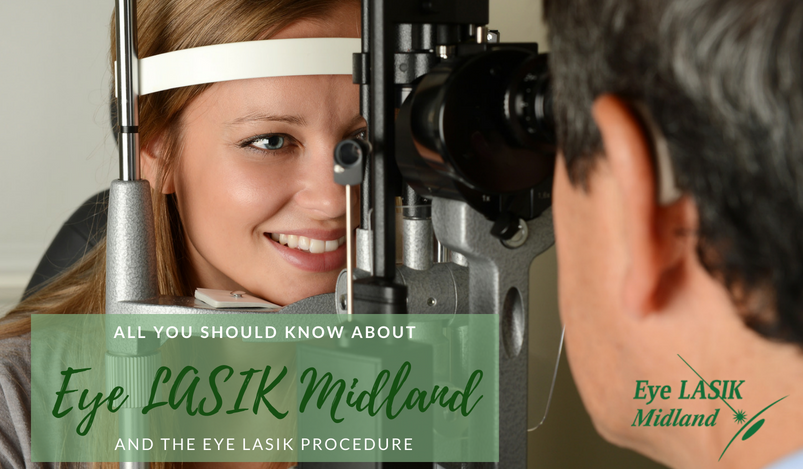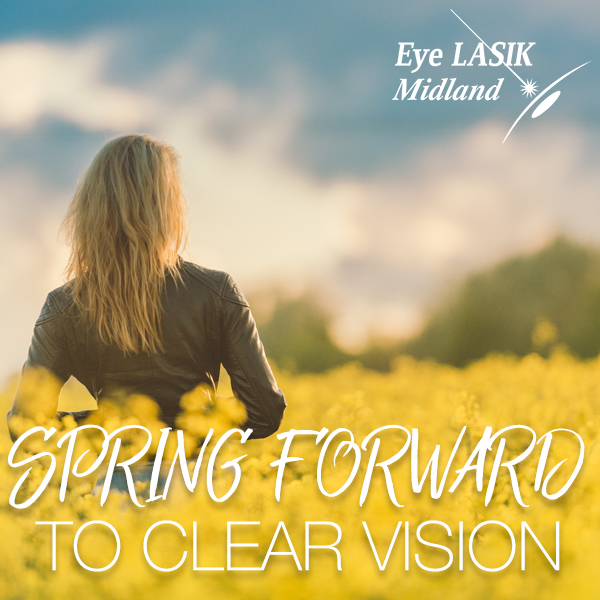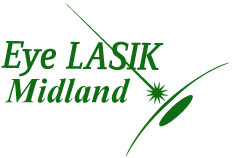
by EyeLASIK | Aug 14, 2018 | Uncategorized
LASIK eye surgery may sound intimidating, not to mention costly, but the investment is the best thing you can do for yourself. In less than an hour, this procedure can change your life. Here are just a few of the benefits of LASIK:
No more hassle of glasses or contact lenses
The most obvious benefit of LASIK is letting go of the hindrance of glasses or contact lenses for good. No more looking for your glasses or fumbling with contacts in the mornings, or falling asleep with your contacts in or your glasses on! Enjoy sports and outdoor activities without needing a separate pair of glasses or touching your contacts with dirty hands. LASIK gives you the freedom to enjoy your active lifestyle on your own terms. On top of that, LASIK pays for itself in not having to buy new glasses or contact lenses and accessories every year!
Reduced risk of eye infections
It’s a fact of life for contact lens wearers: no matter how well you wash your hands and clean your lenses, the fact that you’re constantly putting your fingers in your eyes puts you at risk for eye infections. And although you know better, you’ve probably slept in your lenses at least a few times, like most contact lens wearers, adding to your risk. LASIK not only eliminates the need to place a foreign object in your eye each day but through the healing time, you’ll break the habit of touching your eyes, as well, thereby reducing your risk of all contact lens-related infections and injuries.
Better correction than glasses
Our Advanced Customvue procedure uses the AMO Wavescan Wavefront System to map the unique imperfections of each eye for the highest resolution available. This procedure offers more precise, individualized correction than you can get from glasses or contact lenses, correcting not only near- or farsightedness, but also astigmatism, which can be difficult to correct with lenses alone. If you have trouble with your night vision, it may improve that, as well.
Quick procedure, fast recovery
The LASIK procedure takes only a few minutes and has a very short recovery time. In fact, you will be seeing more clearly as soon as you sit up from the procedure, and your vision will clear even more over the next few hours. Most patients are back to work in the next day or two. You will use various eye drops on a schedule for about the first week, but pretty soon, you’ll forget you ever had less-than-perfect vision!
Eye LASIK Midland offers the latest technology in vision correction surgery, including iLASIK, which is approved for the U.S Air Force and NASA. Our surgeons include the most experienced in West Texas, and we take pride in providing safe, effective, caring treatment to each of our patients. Contact us today to schedule your complimentary LASIK consultation and learn more about how we can help you get the best sight of your life.

by EyeLASIK | Jun 27, 2018 | Uncategorized
Whether it’s a baby, an actor in a movie, or even somebody chopping onions, crying is something with which every person on this planet is familiar. But what causes these tears; why do people cry?
The American Academy of Ophthalmology, or AAO, states that, “Lacrimal glands above each eye produce your tears. . . . When a lot of emotional or reflex tears are made, they overwhelm the lacrimal drainage system. That’s why these tears can spill out of your eyes, run down your cheeks and sometimes dribble out of your nose.”
This certainly explains how tears originate, but what triggers this production? According to Dr. Michael Roizen, “there are three different kinds of tears: basal, irritant, and emotional.”
- Basal tears are the first line of defense when it comes to the eyes. They provide a constant layer of lubrication to not only moisten, but also protect the corneas from the small bits of dirt and debris with which they may come into contact.
- Irritant tears, more commonly reflex, tears are produced when the eyes come into contact with some form of irritating substance, which can include onions, gnats, smoke, or anything else that proves too much for basal tears to handle alone. In addition to removing foreign objects from the eyes, reflex tears can also contain antibodies to aid in neutralizing harmful bacteria.
- Emotional tears are secreted when experiencing strong feelings such as jubilation, melancholy, rage, or terror. Research has found that these tears, unlike basal or reflex, contain additional proteins and hormones commonly associated with stress. While no definitive reason is known, it is commonly hypothesized that after these chemicals are released, they are subsequently secreted in emotional tears to help the body maintain homeostasis.
So why do people cry? Although constantly being secreted and drained, basal tears don’t cause noticeable crying. Like basal tears, reflex tears help protect the eyes; however, unlike basal tears, they can cause noticeable crying when triggered. Emotional tears do not directly protect the eyes, but in addition to being noticeable like reflex tears, the extra substances found in them suggest that they provide some form of useful service for the body.
Eye LASIK Midland always strives to keep its readers informed. If anyone has a question about the content of this post or any questions about eye care in general, please feel free to contact us.

by EyeLASIK | May 15, 2018 | Uncategorized
About Healthy Vision Month
Healthy Vision Month is an annual observance established by the National Eye Institute (NEI) in 2003 to create awareness about eye health and safety. Healthy Vision Month is observed every May and during this month, Americans are encouraged to prioritize their eye health to prevent loss of vision and blindness.
Why our eyes are important
Of the five senses, vision, which is enabled by the eyes, seems to be the most important for several reasons.
- Our eyes help us to connect with our surroundings. If it were not for the sense of vision, for example, we wouldn’t be able to see and appreciate the variety of colors, patterns, and shapes that make up our environment. We actually perceive about 80% of all impressions using our eyes.
- The eyes enable us to perceive movement and gestures and with help from our brains, we can interpret them. For example, a smile can be interpreted as a gesture of friendliness, affection, or appreciation.
- The sense of sight is the most essential for our safety and self-preservation. Our eyes make us aware of the dangers around us hence we avoid them. For example, when you see an oncoming car, you stay on the sidewalk to avoid getting hit.
Why is eye health important?
Because of the important role the sense of vision plays in our lives, caring for our eyes and ensuring they are safe should also be of equal importance. We only have two eyes, and if we don’t take care of them we could lose our sense of vision forever. Good vision helps us care for ourselves and members of our families better. Healthy vision also contributes greatly to our productivity in workplaces as well as the community. It also enhances our abilities for example in athletics, learning and comprehension, and driving.
We should, therefore, ensure that we prioritize eye health just like we do with other parts of their body. Most of us visit our physicians for regular check-ups and physical examinations of other parts of the body, but we rarely consider eye examination as essential. According to the NEI, more than 23 million adults in America have never had an eye exam because they think they don’t have an eye problem. Since many eye diseases don’t manifest in their early stages, many people end up developing complications that could have been prevented with a timely eye exam.
How can you take better care of your eyes?
Just like other parts of our bodies, the well-being of our eyes is largely impacted by our lifestyles. To ensure that you maintain healthy vision, ensure that you:
- Eat healthy foods: A diet rich in fruits and vegetables is good for your eyesight. You should particularly increase your intake of dark leafy green vegetables like kales, spinach, and collard greens. Eating oily fish like salmon and tuna which are rich in omega-3 fatty acids has also been proven to be beneficial to good vision.
- Maintain a healthy weight: Obesity or being overweight can lead to illnesses such as diabetes and other complications which can eventually cause loss of vision.
- Manage chronic illnesses: Chronic conditions like multiple sclerosis, diabetes, and hypertension can cause glaucoma, diabetic retinopathy, inflammation of the optic nerve, or even blindness. However, if you manage them with your healthcare provider, you can prevent these eye problems from occurring.
- Have your eyes comprehensively examined by an eye spet: A comprehensive dilated eye exam helps your eye doctor common eye diseases and vision problems, most of which do not show early warning signs. For those over 60 years of age, having these exams annually is recommended.
- Use protective eye-wear: You should ensure that your eyes are safe during sports by wearing protective eyewear. Also, wear sunglasses when outdoors to shield your eyes from harmful UV rays.
To learn more about Healthy Vision Month and how you can take better care of your eyes and vision, please contact us.

by EyeLASIK | Mar 29, 2018 | Uncategorized
You may have been thinking about having LASIK surgery for a while now. As the seasons change, is it time to take the leap? Here are a few questions to ask yourself to decide if this spring is the right time to give yourself the gift of better vision.
Do I meet the criteria?
You will need to meet with an laser coordinator to be sure you’re eligible for LASIK.
Can I follow the recovery instructions?
At Eye LASIK Midland we recommend 4 days off of work/driving for LASIK. Depth perception is off during that time making driving unsafe. But despite the fact that you will probably have an easy, uncomplicated recovery, there are a few things to be careful about.
- You’ll have to take a break from certain sports, such as swimming. Your surgeon will let you know what to avoid and for how long.
- No eye makeup for a week.
- You’ll probably be able to drive within 4-5 days.
- You can return to work, but avoid dusty, windy conditions or strenuous activity.
- Wear sunglasses to protect your eyes.
- It’s important to go to follow up appointments to be sure you’re healing well and to address any issues you may have, such as dry eyes.
Am I ready?
You’re the only one who can be sure if you’re ready to take the step of LASIK surgery. Here are a few things to consider.
- If you’re concerned about what LASIK surgery will be like, write down a list of questions for your surgeon, or take a look at these answers to some common worries.
- Come up with a plan for how you will pay for the surgery. Here are some suggestions to consider.
- Ask yourself what life will be like with no glasses or contacts.
If you’re ready for a new outlook on life this spring, please
contact us at Eye LASIK Midland for a free consultation.
![Top 6 LASIK Concerns Answered [Part 2]](https://eyelasikmidland.com/wp-content/uploads/2018/03/Untitled-1.jpg)
by EyeLASIK | Mar 15, 2018 | Blog
This a continuation of our series on the top LASIK concerns. In this series, we explain why patients should not be afraid or concerned about getting LASIK eye surgery, a procedure that can provide perfect vision without the use glasses or contacts. Below are numbers 4-6 of the Top 6 LASIK Concerns Answered.
4. Fear of pain from blade
- During LASIK eye surgery, it is necessary to reshape the cornea. This involves the physician making a thin flap on the surface of the cornea. While some other vision correction services use a blade to make the flap, LASIK is done using a laser that is virtually painless and more precise than a blade.
5. Astigmatism being too difficult to correct
- Astigmatism affects many people, and can be difficult to correct with glasses or contacts, especially for those affected with mixed astigmatism. LASIK eye surgery has the ability to correct astigmatism in people with nearsighted (myopia) astigmatism, farsighted (hyperopia) astigmatism, and mixed astigmatism, providing an opportunity for improved vision better than glasses or contacts can provide.
6. Length of recovery time
- Once the LASIK procedure is done, many patients notice a dramatic improvement in vision immediately. Most patients do not experience significant discomfort after surgery and recovery time can be minimal to nonexistent. Patients will be asked to attend follow up examinations to ensure everything is fine. Once it has been determined that the procedure was a success, patients can go on to enjoy having perfect vision.
This concludes the Top 6 LASIK Concerns Answered. At Eye LASIK Midland, patients can rest assured that there is nothing to be worried about when considering LASIK for their vision concerns. To talk with one of our referring optometrist or LASIK coordinator to see if you qualify for the procedure, contact us today to schedule a free consultation.





![Top 6 LASIK Concerns Answered [Part 2]](https://eyelasikmidland.com/wp-content/uploads/2018/03/Untitled-1.jpg)